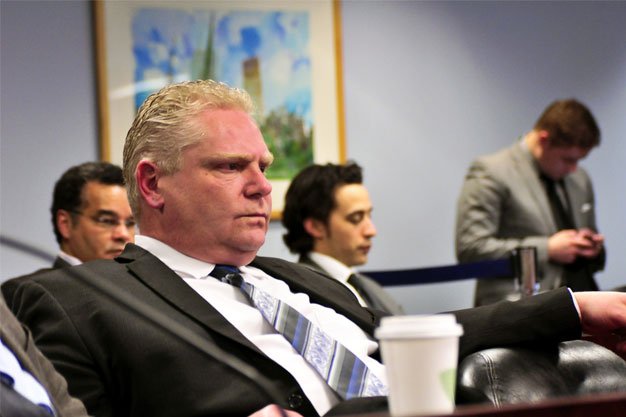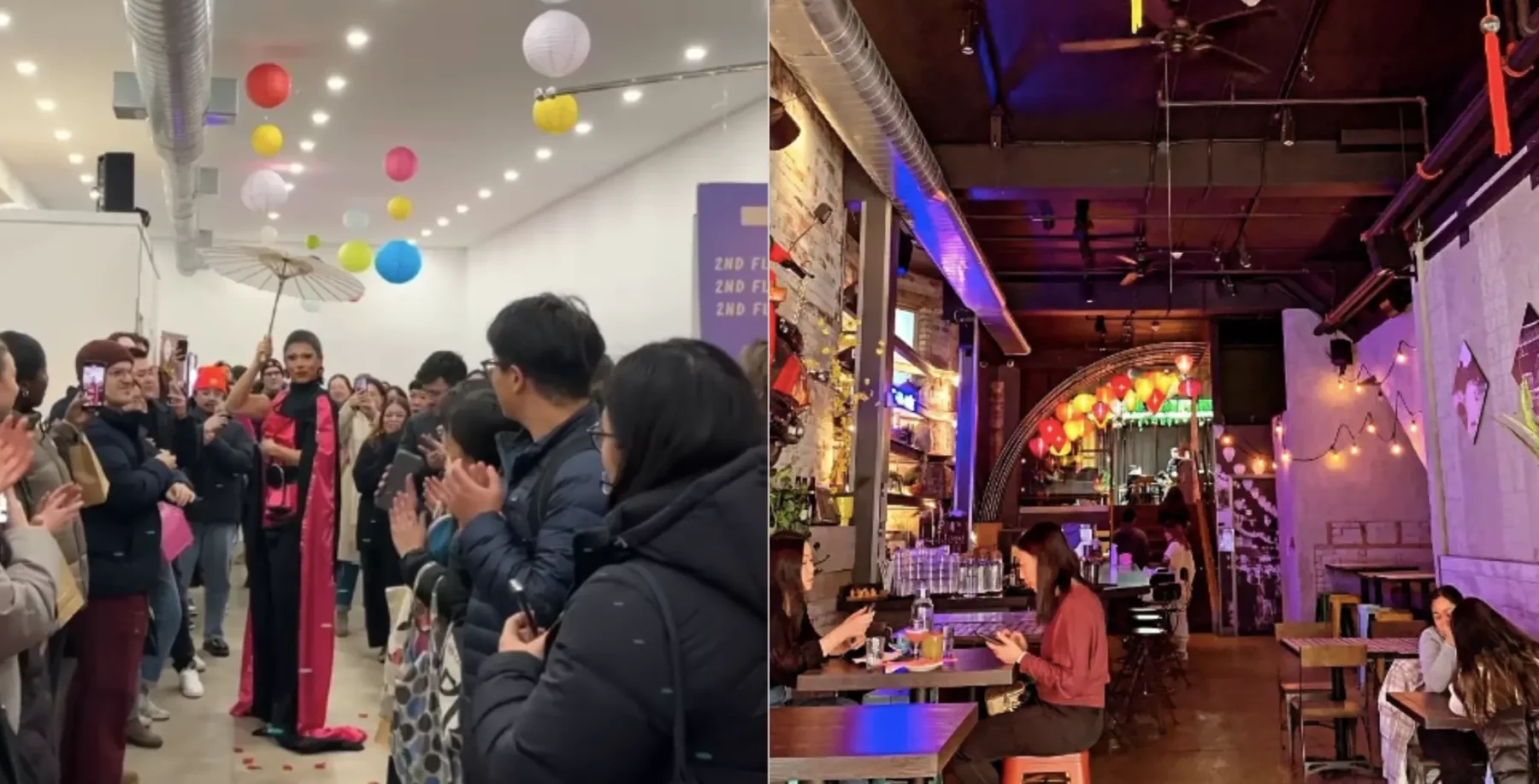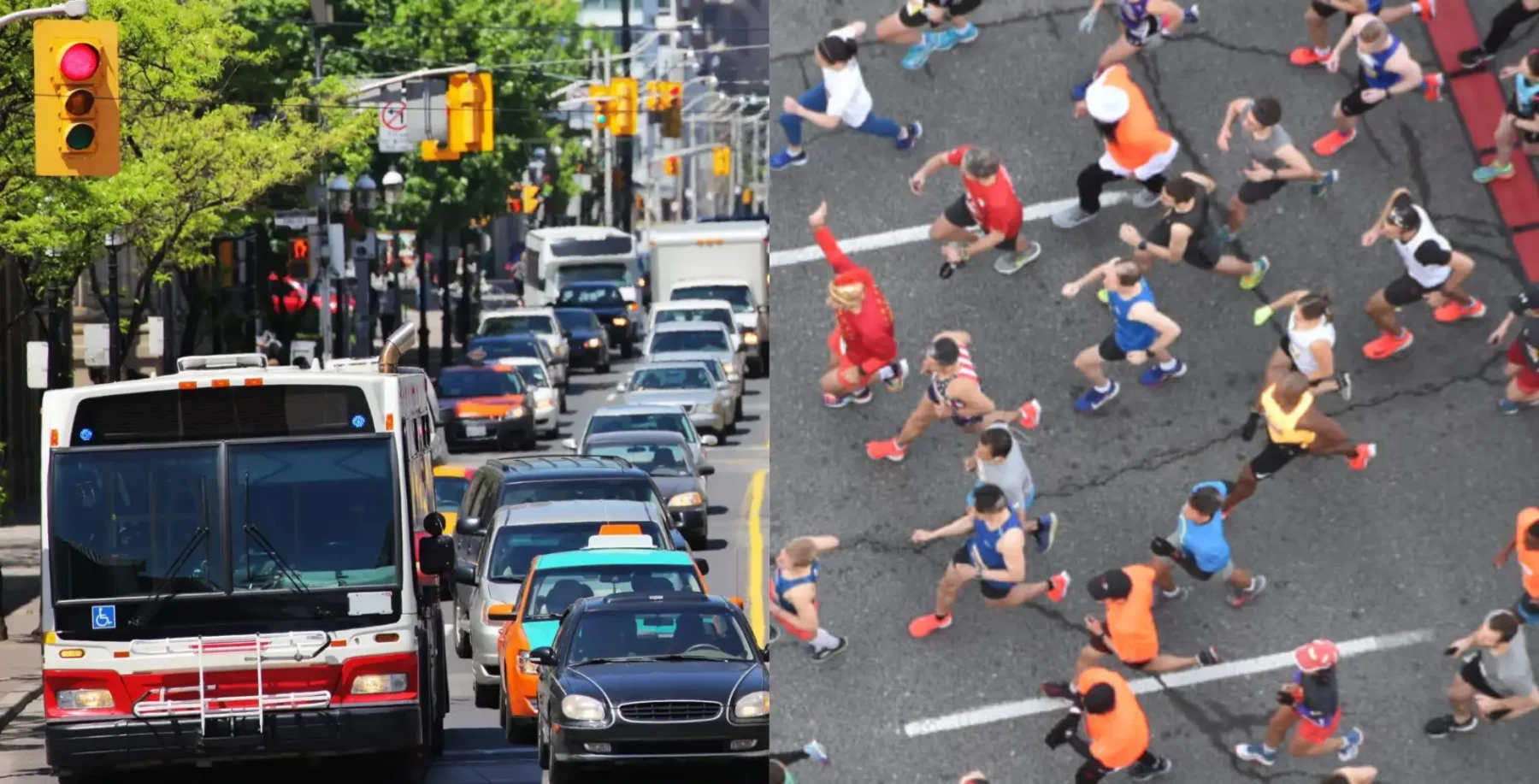
It feels like a discouraging time to be a progressive in Toronto.
Many residents, especially those in certain downtown constituencies, have long cherished the belief that ours is an inherently left-leaning town. But in October’s mayoral election, 76 per cent of voters supported conservative candidates, casting their ballot for John Tory or Doug Ford. And while left-wing councillors all kept their seats, in the process of electing Tory the second right-wing mayor in as many terms, residents soundly rejected Olivia Chow, one of this country’s most respected progressives.
The situation at the provincial level doesn’t look much better. In June the Ontario NDP ran on an unrecognizable centrist, tax-averse populist platform so disappointing that three of five Toronto New Democrat MPPs were turfed from office.
These results can’t be ignored. Is Toronto still a progressive city?
***
Annex dwellers needn’t pack up and move to San Francisco just yet, according to Chris Cochrane, an assistant professor at U of T Scarborough who studies ideological disagreement in Canadian politics. He notes that on social issues like gay marriage or abortion rights, “Toronto is still considerably more liberal than non-Toronto.”
He says it’s a mistake to read this year’s municipal and provincial contests as an expression of left-right sentiment, because these days many voters are so disengaged, they feel no particular affinity for political parties or ideologies.
“A lot of voters simply don’t think in left-right terms,” he says.
Instead, many make electoral decisions on a case-by-case basis depending on a number of factors, including the economy, candidates’ individual personalities and specific policy proposals. That means their allegiance can shift dramatically, even if it means voting NDP one election and Conservative the next.
Gabriel Eidelman, a U of T assistant professor who studies urban governance, agrees that voters are “tuning out to those kind of ideological debates.”
Eidelman says it’s especially tricky to read left-right bias into municipal elections, because “right and left don’t really matter when you talk about a lot of local issues.”
Many causes that in Toronto are inextricably associated with either the left (bike lanes, LRTs) or the right (busy downtown airports, subways) aren’t inherently ideologically linked to either side.
Transit, the issue that took centre stage in the municipal race, is a prime example of a ballot question that doesn’t break down neatly along ideological lines. There’s nothing inherently right-wing about John Tory’s plan to electrify east-west rail corridors, and Chow’s pledge to cancel the city’s $1 billion investment in the Scarborough subway extension should theoretically have appealed more to fiscal conservatives.
If many voters backed Tory and Ford because they promised SmartTrack and subways, their choice at the ballot box should not be misread as an indication that the majority hold conservative views.
Another factor that skews election results is our first-past-the-post system, which often gives people an incentive not to vote for the candidate they like best.
The impact of strategic voting can be overplayed, but this year voters were presented with formidable right-wing bogeymen in PC leader Tim Hudak and Rob Ford (who by September was replaced by his equally conservative brother Doug).
Strategic voting may have hurt the left, but the fact that the electorate ultimately opted for leaders closer to the centre than Ford and Hudak signals that most Torontonians reject far-right policies as much as it shows that support for progressive values is dwindling.
***
With more voters apparently willing to cross back and forth across party lines, the task for candidates is to widen their appeal outside their core constituency and paint their opponents as rigidly dogmatic.
“Tory’s approach was very much to broaden the centre,” says John Duffy, a senior policy adviser to the Tory campaign.
“The idea was to combine the best of three political traditions,” he says: the “fiscal discipline” of conservatism, the “compassion” of liberalism and the type of progressive urbanism usually associated with the NDP. In practice this meant promising low taxes, vague but “inclusive” housing programs and urban tree-planting initiatives.
Chow tried hard to equate Tory with hardcore conservatives like the Fords, Hudak and ex-premier Mike Harris, but Duffy says the comparisons never stuck. He argues that the mayor-elect is a true progressive conservative.
Chow also tried to reach outside her base, by appealing to the disaffected voters who supported Rob Ford’s brand of conservatism in 2010. It “was the basis of our campaign strategy” at the start, says a senior member of her team.
To that end, Chow pledged more bus service on routes Ford had cut, and to expand school nutrition and free recreation programs that he’d threatened to eliminate. Crucially, she also declared early in the campaign that she wouldn’t raise property taxes above inflation, and repeatedly borrowed conservative opponents’ rhetoric about “fiscal responsibility.”
Ultimately, Chow lost the fight for ideologically fluid voters. A full 19 per cent of people who supported the provincial NDP said they planned to vote for Doug Ford, according to a Forum poll released five days before the municipal vote. Another 24 per cent of ONDP supporters said they planned to back Tory.
On paper at least, Chow’s strategy made sense, but any candidate with a resumé as progressive as hers would likely have had trouble making the shift toward the middle look credible. While Tory could believably run by pulling from different parties’ playbooks, the whole point of a principled progressive candidate like Chow is that she doesn’t compromise.
When she emphasized a commitment to “fiscal responsibility,” even in the context of stopping the wasteful Scarborough subway, voters “felt that she just wasn’t being genuine,” says her former campaign insider.
NDP leader Andrea Horwath had the same problem when she pinned her party’s fortunes on a platform of pocketbook populism. Like Chow, the NDP leader came off as disconnected from her party’s values, and she was badly outflanked by the Liberals, who were seen by many voters as the more progressive option.
***
Despite these dispiriting defeats, if voting intentions are much more fluid than the left-right paradigm would have us believe, there’s no reason to think Toronto voters won’t back progressives in big numbers in the future.
Rick Smith, executive director of progressive think tank the Broadbent Institute, argues that with economic inequality affecting a growing number of people, “the left needs to return to a basic gut-level message about fairness, about equity, about people doing their fair share. That is a winning message.”
But Myer Siemiatycki, a professor of municipal immigration and labour politics at Ryerson University, says that if this year’s elections prove anything, it’s that the left is failing to leverage growing inequality to gain support for policy initiatives aimed at marginalized groups.
You would expect greater economic polarization “to create a natural constituency for the left,” Siemiatycki says. But instead, “the left is having greater difficulty resonating and connecting with the disadvantaged.”
While widespread political disengagement means more residents will switch freely between candidates of disparate ideological stripes, as the Fords’ success shows, it also benefits non-progressives in an important way: concomitant with that disengagement is a deep mistrust of government.
“The fact that there is not an appetite and support for the state as provider and investor in the public good is a big problem” because so much of the left’s agenda is predicated on positive government intervention, says Siemiatycki.
The task for progressives is to convince those getting the short end of the stick that a left-wing government can help. Siemiatycki believes that can only be done through intense engagement at the local level and “regular and ongoing conversations” outside of election periods.
“A progressive, left political party should do more than knock on people’s doors once every four or five years,” he says.
bens@nowtoronto.com | @BenSpurr












